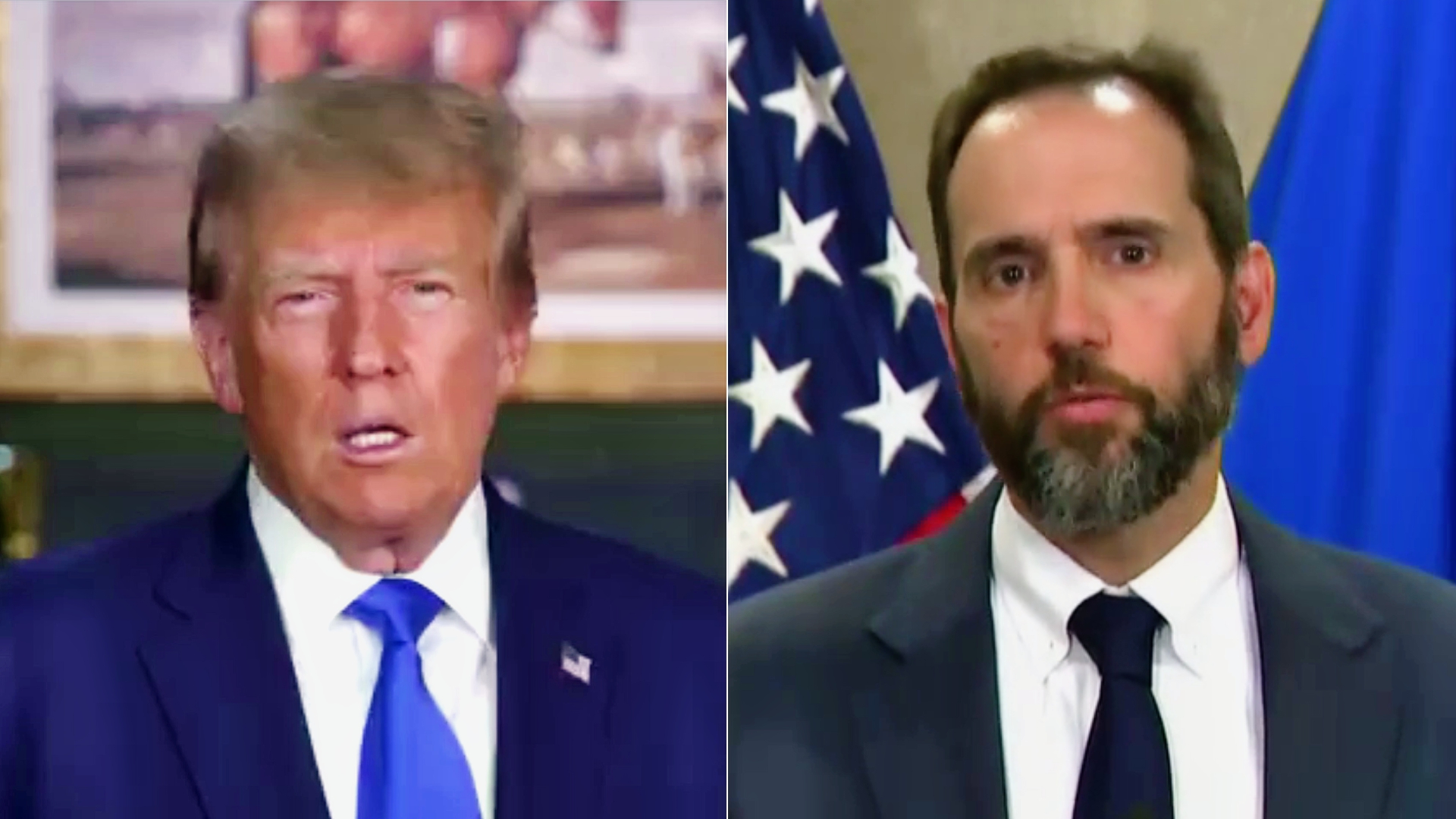Politics
Jack Smith, DOJ Destroyed By SCOTUS Justices During Arguments On Crucial Statute

Both liberal and conservative justices on the U.S. Supreme Court voiced skepticism about special counsel Jack Smith’s interpretation of a constitutional clause which he has held up in defending his decision to charge former President Donald Trump and hundreds of J6 attendees with obstruction.
During oral arguments, justices opined on Smith’s interpretation of USC 1512, which covers tampering of witnesses and evidence. Over two hours, it was unclear whether a majority opinion was surfacing but it was suggested that Smith will continue to struggle defending his prosecution.
Justice Clarence Thomas, a conservative, described the January 6th, 2021 events as a “violent protest” but contended that there have been “many” similar instances “that have interfered with proceedings.” Thomas questioned whether the Department of Justice had explored obstruction charges in those cases.
“Would a heckler in today’s audience qualify, or at the State of the Union address? Would pulling a fire alarm before a vote qualify, and for 20 years in prison?” conservative Justice Neil Gorsuch added, perhaps an allusion to Democratic Congressman Jamaal Bowen’s (D-NY) decision to pull a fire alarm before a congressional vote.
“Let’s say that today five people get up one after the other and they shout either, ‘Keep the January 6 insurrectionists in jail!’ or ‘Free the January 6 patriots!’ And as a result of this, our police officers have to remove them forcibly from the courtroom. And let’s say we have to delay the proceeding for five minutes,” Justice Samuel Alito hypothesized according to Politico.
Speaking on behalf of the Justice Department, Solicitor General Elizabeth Prelogar said a brief delay would not qualify as an “obstruction” though Alito was quick to counter that the statute may be interpreted to mean that any action which “impedes” an official process may qualify.
A key element of the prosecution’s argument rests on their characterization of J6 as an event without historical precedent, one which resonated with liberal Justice Sonia Sotomayor.
“We’ve never had a situation before where there’s been a situation like this with people attempting to stop a proceeding violently. So, I’m not sure what the lack of history proves,” she said.
“I’m not sure that that’s true,” said attorney Jeffrey Green, representing J6 defendant Joseph Fischer. He cited violent protests in Portland, Oregon during the 2020 Black Lives Matter riots where attendees took over a courthouse and established a police-free zone in the center of the city for weeks.
“It’s going to chill protected activities. People are going to worry about the kinds of protests they engage in, even if they’re peaceful, because the government has this weapon,” Green said.
Lower courts which has prosecuted hundreds of J6 attendees have largely accepted the interpretation that USC 1512 could apply to their actions that day, though that notion was challenged by U.S. District Judge Carl Nichols who issued a more narrow ruling about the need for a destruction of actual physical evidence. Chief Justice John Roberts appeared sympathetic to the defense’s arguments that 1512, which was passed in the wake of the 2001 Enron scandal, was passed to fix a loophole in obstruction laws and wasn’t meant to be an “omnibus” statute covering a wide range of obstructive activities.
“Attempting to stop a vote count or something like that is a very different act than actually changing a document or altering a document,” Green said.
Legal observers believe the court’s debate may lead to a beneficial ruling for former President Donald Trump, who was not mentioned during proceedings though whose federal J6 case relies on similar charges of obstruction. The Justice Department is scheduled to present arguments against presidential immunity before the Supreme Court next week.

